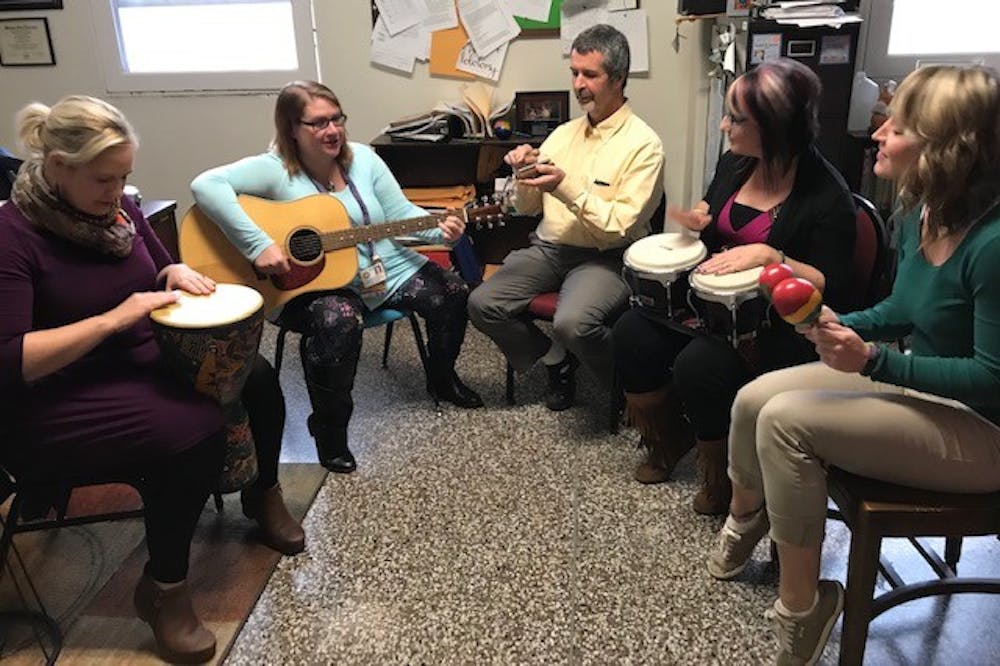Jennifer Bagley, a nationally certified music therapist who practices in Morganton, N.C., said there is a national board certification that professional music therapists should complete. However, Bagley said that certification is not always recognized at the state level.
“We’ve been struggling with that for at least the past three to four years,” Bagley said. “Everyone who practices as a music therapist is supposed to complete a degree and do a six-month internship and then there is a board certification exam that we take at the end of that.”
She said House Bill 192, the bill that would establish a state licensure for music therapy, has been going around the North Carolina legislature for over a year – and the last time the bill was seen on the floor was June 2017.
Bagley said the process is frustrating for practicing music therapists in North Carolina who want the recognition of professional licensure. She said her work is just as effective as other forms of non-creative therapy.
“One patient I worked with had struggled with tendencies toward self-injury in their past,” she said. “It was after they were discharged that they actually sent me a letter, and they talked about how music and learning to play guitar had taken the place of wanting to self-injure.”
Charlotte-based Gretchen Benner is a nationally certified music therapist who runs a private practice. She said when clients come to her, she looks at their cultural background, musical abilities and treatment goals to personalize therapy sessions.
“Even when I work with clients who don’t want to participate – they were involuntarily admitted to the hospital – our body naturally wants to go in rhythm with music,” Benner said. “You’re like, ‘Okay, I hear you saying you don’t want to sing along, but I do see your foot tapping along.’”
She said she has seen particularly positive results in children with behavioral disorders.
“Music and different ways of interactive play are so foundational and important in familial bonding,” she said. “It can really use up a lot of really strong emotions and sentiments. Some families tell us it’s hard to get their kids to get in the car for other appointments, but with music therapy, they’re like, ‘Yay, music!’”
Bagley said she thinks individuals respond to music therapy in a positive way because clients do not feel intimidated when they walk into treatment sessions.
“It’s a lot more non-threatening to be able to identify parts of yourself in song lyrics than it is to outwardly talk about the struggles,” she said. “It’s a creative form of self-expression that’s constructive as opposed to destructive, and it really gives people that creative outlet to be able to get their feelings out in a healthy way.”
The self-expression in clients is what makes music therapy worth it, Benner said.
To get the day's news and headlines in your inbox each morning, sign up for our email newsletters.
While speaking about her work, she got choked up. Benner said she could not imagine herself in any other profession.
“Yes, we have music, but if I’m not able to connect with an individual, I can’t get to the music part,” she said. “It really, at the end of the day, is about human connection.”
arts@dailytarheel.com



